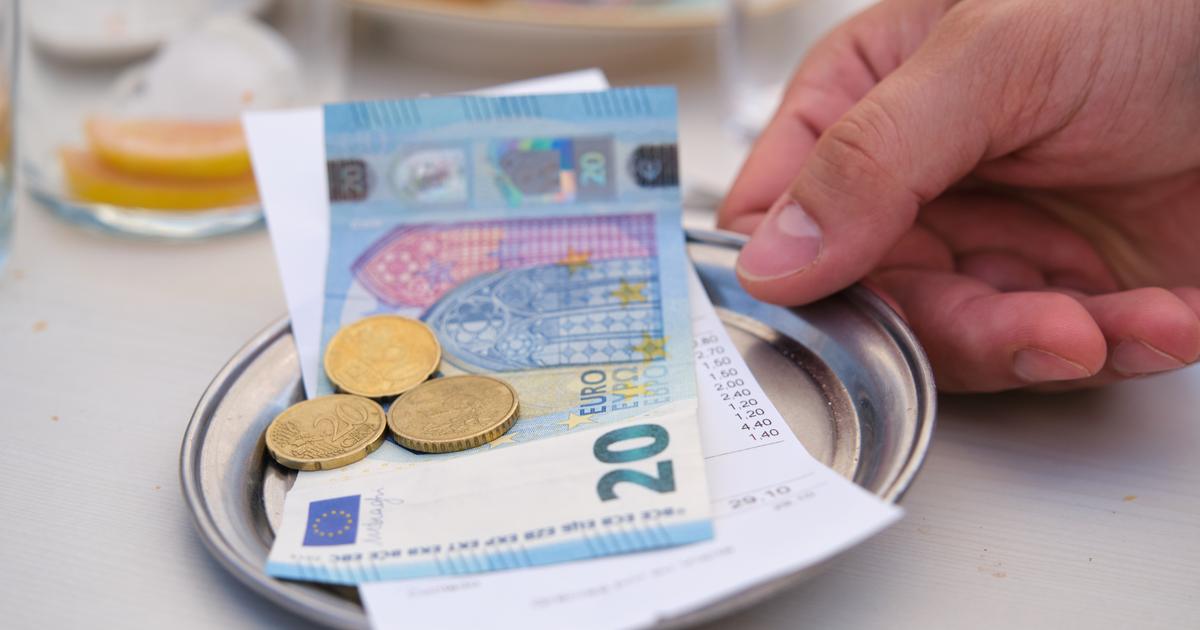Energy industry considers electricity price brake in January to be technically "not feasible"
Created: 11/19/2022 12:36 p.m
Federal Economics Minister Robert Habeck has defended Germany's high spending on relief due to high energy prices.
© Bernd von Jutrczenka/dpa
According to the energy industry, the electricity price brake is not technically feasible as of January 1st.
Criticism comes from politics, however.
Are energy suppliers threatening to steal state funds?
Berlin - The energy industry continues to consider the introduction of the electricity price brake planned by the federal government in January to be unfeasible.
The municipal utility association VKU confirmed on Friday in the
Bild
newspaper that the price brake will not be able to start earlier than March.
The reason is the complicated technical conversion.
Meanwhile, there is also substantive criticism from politics: the electricity price brake could torpedo the urgently needed expansion of renewable energies, warned FDP energy expert Michael Kruse.
It is also unclear how intentional electricity increases by suppliers can be prevented.
Planned electricity price brake: Energy industry "does not yet know the rules"
The federal government plans that a basic quota of 80 percent of previous consumption for a gross price of 40 cents per kilowatt hour should be made available for electricity for households, as with the gas price brake.
To co-finance the electricity price brake, "accidental profits" from companies on the electricity market are to be skimmed off retrospectively from September 1st.
This affects producers of green electricity from wind and sun, for example, who have recently benefited from high prices on the stock exchange.
The implementation will obviously be difficult in terms of time, since the IT of the energy companies has to be adapted accordingly.
"As of today, we don't know any regulations, we don't yet know the rules that we are supposed to implement," said VKU Managing Director Ingbert Liebing.
"In order to implement the electricity and gas price brake, we have to intervene massively in complex IT processes and need free capacities from specialized IT service providers."
Criticism of the electricity price brake: "Intentional increases in electricity prices should not be worthwhile"
It is apparently unclear how it can be ensured that the suppliers do not intentionally set the prices too high in order to collect state money.
In the Bild
newspaper, with a view to the expected draft law, the FDP demanded
that Economics Minister Robert Habeck (Greens) must ensure that suppliers "do not make big profits" with the electricity price brake.
Intentional electricity price increases should not be worthwhile, said energy expert Michael Kruse.
However, if the prices fell below 40 cents per kilowatt hour, there is also a risk, according to experts, that this would not go down well with customers.
The concern is no coincidence: even with the tank discount, there were fears that oil companies would not pass the discount on to customers.
The Cartel Office had warned the mineral oil companies to "keep a close eye on" price developments.
Is excess profit tax slowing down the expansion of renewable energies?
CDU leader Friedrich Merz expressed doubts about the effectiveness of the planned energy price brakes.
"It is a challenge to effectively build in national price brakes on a world market," he told the newspapers of the Funke media group.
He also thinks it is very problematic to skim off so-called excess profits from companies for financing.
"I can hardly imagine a constitutional solution," said Merz.
"If we want to lower energy prices in the long term, we have to expand the supply - and connect all available sources to the grid," he demanded again.
also read
One-time payments for families, tenants, owners: there is so much money from the state now
Pension: Strong increase in 2023 - table shows how much money there is
From the point of view of FDP politician Kruse, the fact that the excess profit tax also applies to green electricity providers is obviously a mistake.
Projects to expand renewable energies could therefore be put on hold: "Habeck must not torpedo the plans to expand renewables.
But if he wants to skim off the profits from the providers, then he does exactly that. In doing so, he endangers the long-term success of the energy transition,” Kruse said on Friday to the
picture.
An excess profit tax siphons off so-called random profits that go beyond the “normal profit” of companies in order to relieve consumers.
Sometimes there is also talk of “crisis profits”.
The price brakes for gas and electricity do not go far enough for consumer advocates
Consumer advocates expect the price brakes to have a limited effect and are calling for additional help for those in need in view of the sharp price increases by utilities.
"Despite the brakes, gas will remain about twice as expensive as in 2021," said Ramona Pop, head of the Federal Consumer Association vzbv, of the
Neue Osnabrücker Zeitung
.
In addition, for many, the help comes too late.
"That's why we need a moratorium on gas and electricity cuts for this winter."
(dpa/bme)






